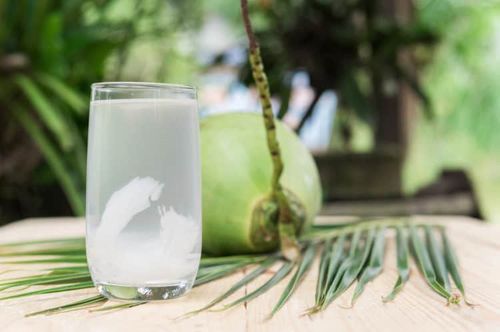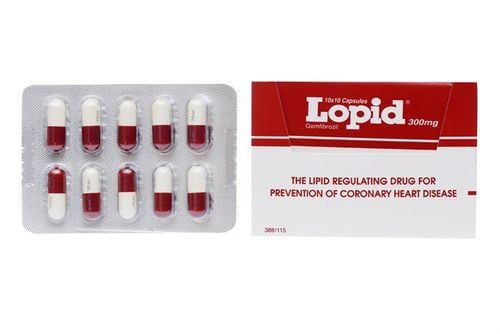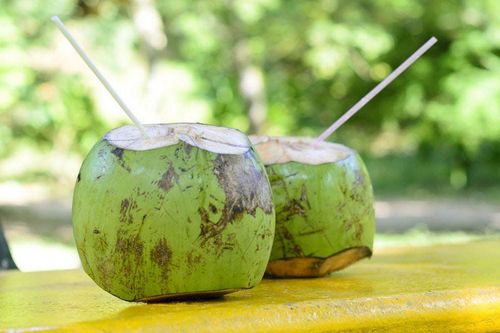This is an automatically translated article.
Coconut is a common tree found in tropical regions. Two popular coconut-based beverages are coconut water and coconut milk. However, it is two very different products. So what makes the difference between these 2 drinks?
1. Coconut water
Coconut water is a sweet, liquid that you can drink directly without needing to be processed. It occurs naturally in the coconut fruit. As the young coconut begins to mature, the coconut water begins to harden to form coconut flesh.
However, the maturation process does not fill the coconut meat, so you can still find some coconut water in the mature coconut. Coconut water is a popular beverage because of its health-promoting effects.
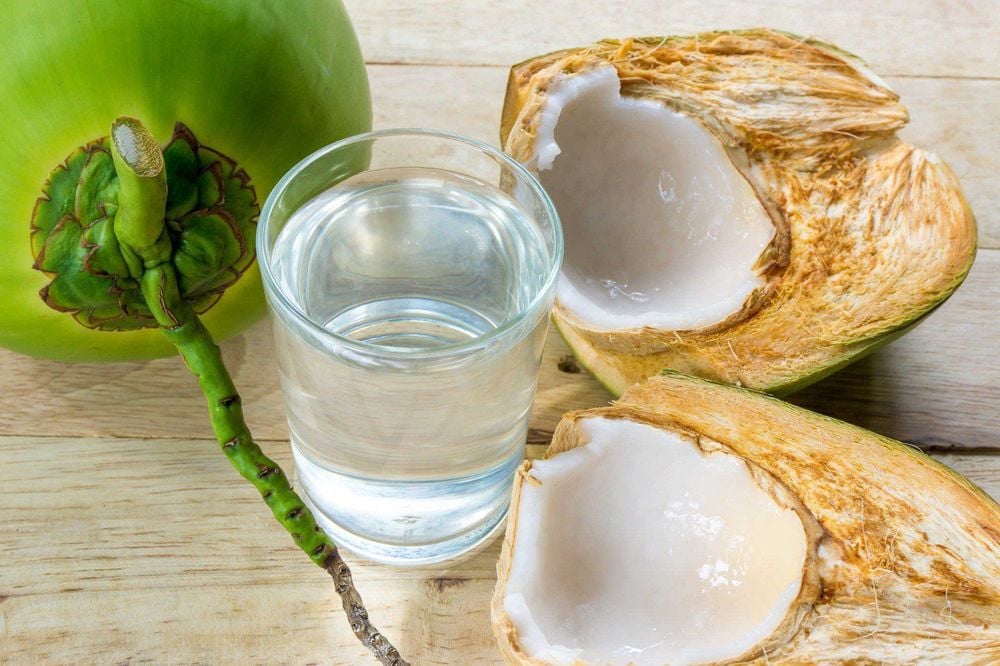
Nước dừa khác gì sữa dừa?
2. Coconut milk
Unlike water, coconut milk is a processed coconut product. It is made by grinding the flesh of mature coconuts and boiling them in hot water. The mixture is then filtered to remove any solid remnants. The amount of water used to make the milk determines its consistency. Coconut milk is mainly used as a substitute for cow's milk, used as a thickener for things like sauces or as a traditional recipe in many Indian and Southeast Asian cuisines.
3. Nutritional composition of coconut water and coconut milk.
These are two separate coconut drinks and have different nutritional profiles. Here is a comparison between 1 cup (240mL) of coconut water and milk:
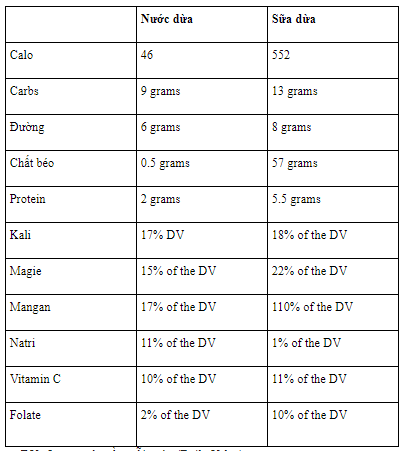
Thành phần dinh dưỡng của nước dừa và sữa dừa
DV : Daily Value
Coconut water is a low calorie drink, while coconut milk is high in calories - in amounts about 12 times higher. In terms of ingredients, coconut water contains about 94% water and carbs while having almost no fat and protein. In contrast, coconut milk has about 50% less water with fat as its predominant nutrient. However, they do share some similarities when it comes to vitamins and minerals, although coconut water is higher in folate and manganese, while coconut water is higher in sodium.
4. Pros and cons of drinking coconut water and coconut milk
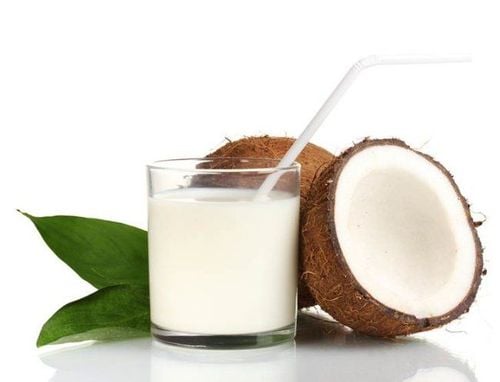
Sữa dừa có nhiều lợi ích cho sức khỏe
Coconut water and milk have many health benefits to offer. However, you have the option of choosing one over the other depending on your nutritional goals and needs.
Pros: Coconut water has become quite popular among physically active people due to its ability to replenish electrolytes, such as sodium, potassium, magnesium and calcium, which are lost through sweat during exercise. . In addition, coconut water can help reduce oxidative stress, lower blood sugar. Coconut water may support heart health by lowering blood cholesterol, triglycerides, and LDL (bad) cholesterol while increasing HDL (good) cholesterol levels.
As for coconut milk, about 89% of its fat content is saturated fat, studies show that it does not cause adverse effects on blood lipids, may even aid weight loss and fat loss. Cons: Concentrations of coconut water may help lower blood pressure in people with high blood pressure. However, people with kidney disorders need to limit their use. Once kidney function is impaired, often leading to hyperkalemia, potassium levels in the blood increase due to the inability of the kidneys to excrete potassium. Therefore, consuming too much of this mineral can have harmful effects on the body. On the other hand, while coconut milk can have a positive effect on weight loss, it is still a drink with high calorie content. Therefore, try to limit your intake to keep calories in balance with controlled calories. Additionally, some experts recommend that because coconut milk is a high-FODMAP beverage, you should limit your intake if you are intolerant of FODMAPs or are following a low-FODMAP diet.
However, some people classify it as a low FODMAP food. Therefore, you may want to assess your own tolerance for it to determine whether you should limit your intake or avoid it altogether. (FODMAP is an acronym for oligo-, di-, monosaccharide and fermentable polyols - a group of carbs that can cause abdominal symptoms, such as bloating, nausea, diarrhea, and constipation in some people). Also, Although very rare, it is still possible to have a coconut allergy. Therefore, you should avoid drinking coconut water and milk if you are allergic to them.
Finally, whether you choose to drink coconut water or coconut milk, always check the ingredient list and avoid those with added sugar. Because sugary drinks are linked to an increased risk of diseases like obesity and type 2 diabetes.
Coconut water and milk are often confused because they are both popular coconut beverages. However, they are two separate drinks, as coconut water occurs naturally in fruit, while coconut milk is a processed beverage. They also have different nutritional compositions and are used for different purposes. While both offer many health benefits, people with kidney disease need to be cautious about drinking coconut water, while those who are intolerant of FODMAPs should also limit coconut water. Whether you choose coconut water or coconut milk, avoid brands with added sugar to enjoy their benefits.
Please dial HOTLINE for more information or register for an appointment HERE. Download MyVinmec app to make appointments faster and to manage your bookings easily.
Reference source: healthline.com



